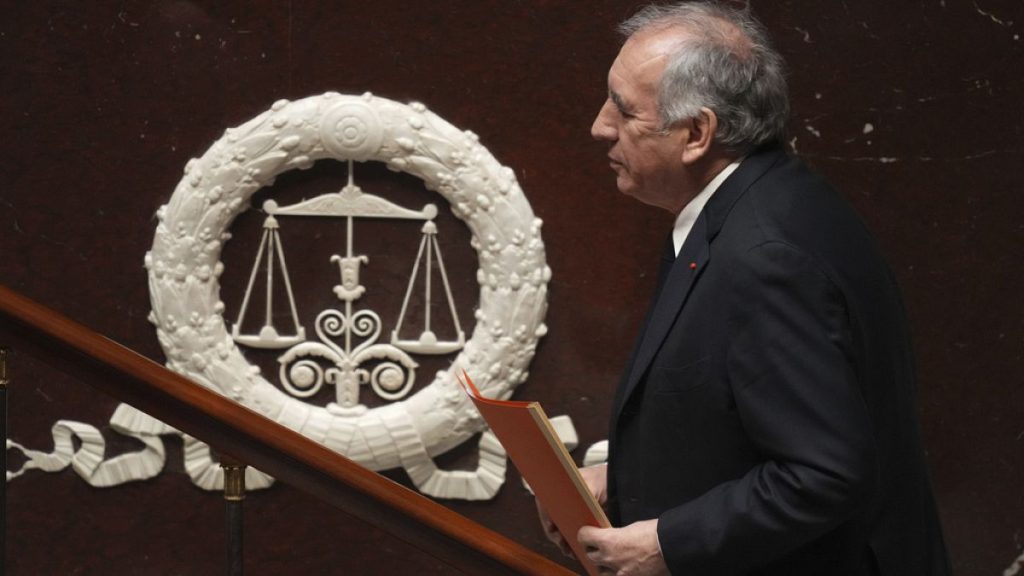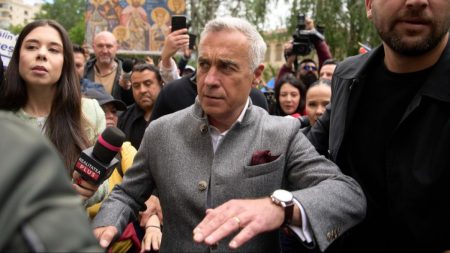Summarize this content to 2000 words in 6 paragraphs in Arabic
France’s Court of Auditors has contradicted earlier claims by Prime Minister François Bayrou about how much the country’s pension scheme costs.
ADVERTISEMENTPrime Minister François Bayrou shocked France when he said in January that the country’s pension scheme was haemorrhaging billions.As part of his government policy statement, in which he outlined his priorities to the French parliament, Bayrou said that pensions were costing France €55 billion a year and that the controversial 2023 pension reform would need another look.He commissioned France’s Cour des Comptes, or Court of Auditors, to carry out a flash report on the country’s coffers to provide objective facts and figures for any future changes to the pensions system.The court published its report on 20 February, revealing that the pensions deficit will sit at some €15 billion by 2035, and then around €30 billion two years later.It’s not quite the €55 billion that Bayrou suggested, but still a dire hole in the country’s finances.As things currently stand, the deficit will stabilise at around €5 billion for the next five years, thanks to the effects of the 2023 pension reform, but it won’t be enough: things will quickly start to get worse from there, according to the court.It said that France’s 2045 projected financial outlook for pensions is “worrying” and that two schemes in particular are the problem: the general pension scheme, and that of local authority and hospital employees.”Neither higher per capita labour productivity than assumed (1% per annum instead of 0.7%), nor the eventual reduction in the unemployment rate to 5% (instead of 7%) would significantly reduce the efforts required to return to balance,” the court said.The debt caused by these two schemes would balloon to €470 billion by 2045, according to the court, which would go against the principle of pay-as-you-go pension schemes — where pensions are paid by the current workforce at a given time.It did highlight some positive points though: it said that pensions would continue to grow during this period, not accounting for inflation, and that French pensioners would be in a better position than those in other OECD countries.”In addition, the length of time a person is retired would not decrease compared to the current situation despite the increase in the retirement age linked to the application of the 2023 reform,” the court said. “The later retirement age would be offset by an equivalent increase in life expectancy.” It also said that the self-employed wouldn’t be adversely affected and that supplementary pension schemes should also rise. While delivering the results of the report, the court’s first president, Pierre Moscovici, said that its objectives were not to provide any recommendations about what the government should do next, but rather reach clear conclusions on the pension system.Nevertheless, the pension reform, which raised the retirement age from 62 to 64, remains severely unpopular in France. The Court of Auditors’ assessment, which suggests it doesn’t go far enough in fixing France’s overall 6.1% deficit as of the end of 2024, is a blow to calls to get rid of it.The pension reform was brought in under the government of Élisabeth Borne and passed in March 2023, after the former prime minister used a controversial constitutional tool known as Article 49.3 to force her budget plan through parliament without giving MPs a vote.ADVERTISEMENTThe mere tabling of the bill sparked a series of huge, occasionally violent protests all over France, leading to widespread disruption in public services and multiple no-confidence votes against Borne, which she survived.It’s been a similar story for Bayrou since he took office in December, his rocky start mostly caused by the alarming state of France’s finances.The prime minister recently survived his third no-confidence vote in less than a month, after he himself used Artice 49.3 to ram through his 2025 budget.Surviving the vote means the automatic adoption of the budget plan, which aims to cut an eye-watering €30 billion and raise taxes by €20 billion to limit France’s deficit to 5.4% of GDP this year.ADVERTISEMENTBayrou previously signalled his intention to reopen the debate on the contentious pension reform in an effort to win support from socialist MPs, whose support he needed to fend off the no-confidence votes.He’s said that all options are on the table, including changing the retirement age again, provided they don’t harm the pension system’s finances even further. France has been in a state of political paralysis after President Emmanuel Macron dissolved the lower house of parliament following his party’s loss in the European elections in June 2024. The summer vote ended with a hung parliament divided into three blocs with no absolute majority, which quickly led to the collapse of the government under Bayrou’s predecessor, Michel Barnier, who became France’s shortest-serving prime minister.ADVERTISEMENT
rewrite this title in Arabic Fact check: Is France’s pensions system costing €55 billion a year?
مقالات ذات صلة
مال واعمال
مواضيع رائجة
النشرة البريدية
اشترك للحصول على اخر الأخبار لحظة بلحظة الى بريدك الإلكتروني.
© 2025 جلوب تايم لاين. جميع الحقوق محفوظة.













